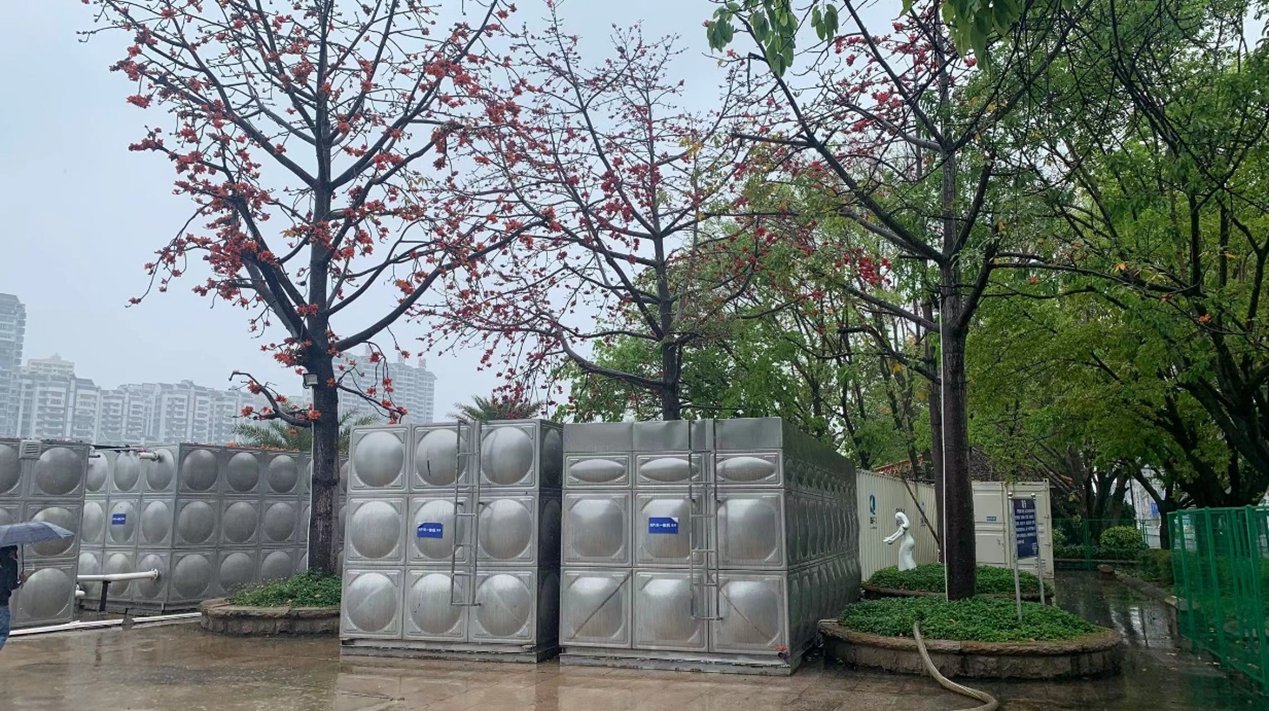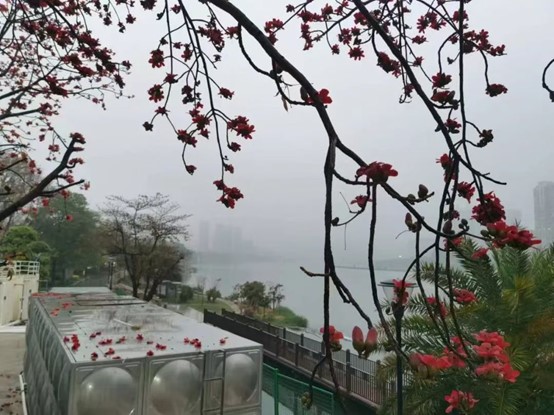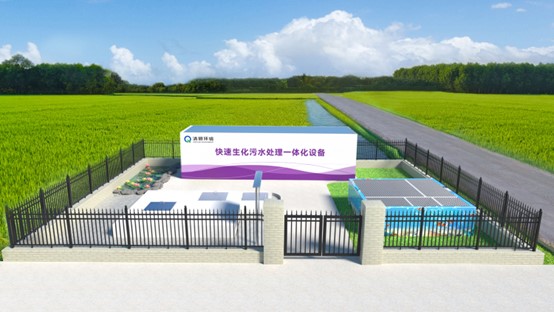A Cost-effective and Simple operation and maintenance sustainable solutions for wastewater treatment that was seamlessly integrated into the urban fabric:Jieyang Rongjiang North River Tributary Water Purification Facility Construction Project
Jieyang, a city in Guangdong, China, is pioneering a new era of sustainable water management. The city is home to an innovative project, the RPIR mobile water treatment system. This system is revolutionizing how we think about water purification, especially within the context of urban parks and green spaces. The RPIR system is strategically positioned within one of Jieyang's most prominent parks, providing a constant source of purified water for the park's needs. This approach not only ensures the health and vitality of the park's landscape but also minimizes the environmental footprint associated with traditional water treatment methods. This localized approach to water management is a testament to Jieyang's commitment to sustainable practices. The RPIR unit blends seamlessly into the park's surroundings, demonstrating that advanced technology can coexist harmoniously with nature. Its unobtrusive presence reflects a thoughtful approach to design, ensuring that the park's aesthetic integrity remains intact. This sensitivity to both functionality and aesthetics sets a new standard for sustainable urban development. It showcases a dedication to integrating sustainable solutions into the very fabric of city life.
The RPIR system represents a move away from bulky, centralized water treatment plants. Its mobile nature allows it to be deployed precisely where it is needed, minimizing the need for extensive pipeline networks. This flexibility is particularly valuable in urban environments where space is often at a premium. The RPIR system employs a multi-stage purification process that effectively removes contaminants,making it suitable for a variety of uses within the park. One of the most remarkable aspects of the RPIR system is its operational simplicity. The system is designed for user-friendliness, requiring minimal technical expertise to operate and maintain.

The RPIR system's compact footprint makes it ideal for urban environments where space is often limited. Its mobility allows it to be relocated as needed, adapting to the evolving needs of the park and surrounding areas. This adaptability makes it a valuable asset in dynamic urban landscapes. The RPIR system's cost-effectiveness extends beyond its energy efficiency. Its modular design simplifies maintenance and repair, reducing downtime and associated costs. This focus on maintainability ensures that the system remains operational over the long term, providing a reliable source of purified water. The RPIR system's affordability makes it an attractive solution for municipalities looking to improve their water infrastructure without incurring significant costs. Its ability to deliver high-quality water at a fraction of the cost of traditional treatment methods makes it a compelling investment for a sustainable future.

The RPIR system goes beyond simply purifying water; it does so while adhering to the most stringent environmental regulations. Its closed-loop design minimizes waste and prevents the release of harmful substances into the surrounding ecosystem. This commitment to environmental protection is central to the RPIR system's philosophy. The RPIR system's quiet operation ensures that it does not disrupt the tranquility of the park environment. Its unobtrusive presence allows visitors to enjoy the park's natural beauty without being disturbed by the sounds of machinery. This delicate balance between functionality and environmental sensitivity is a testament to the project's thoughtful design. The RPIR system's use of environmentally friendly materials further underscores its commitment to sustainability. Its durable construction ensures a long lifespan, minimizing the need for frequent replacements and reducing its overall environmental impact. This responsible approach to material selection sets a positive example for other infrastructure projects. The RPIR system's ability to operate effectively in a variety of climates makes it a versatile solution for water treatment challenges across the globe. Its resilience to fluctuating environmental conditions ensures that it can provide clean water reliably, regardless of location or weather patterns. This adaptability is crucial in an era of increasing environmental uncertainty.

The RPIR system's impact extends far beyond the boundaries of Jieyang's park. It represents a paradigm shift in urban planning, demonstrating that sustainable solutions can be seamlessly integrated into the urban fabric. The RPIR system's success in Jieyang serves as a model for other municipalities looking to enhance their water management practices. Its ability to provide clean water efficiently and sustainably makes it an attractive solution for cities facing water scarcity or aging infrastructure. The project's replicability is key to its potential for global impact. The RPIR system's focus on localized water treatment aligns with the growing movement towards decentralized infrastructure. This approach reduces reliance on centralized systems, making cities more resilient to disruptions and empowering local communities to manage their own resources. This shift towards decentralization is essential for building a more sustainable and equitable future. The RPIR system's story is a testament to the power of innovation in shaping a more sustainable world. It serves as a powerful reminder that solutions to our most pressing environmental challenges often lie in the creative application of technology and a commitment to responsible urban planning.
 LOADING...
LOADING...
 DATE:2024年05月21日
DATE:2024年05月21日


